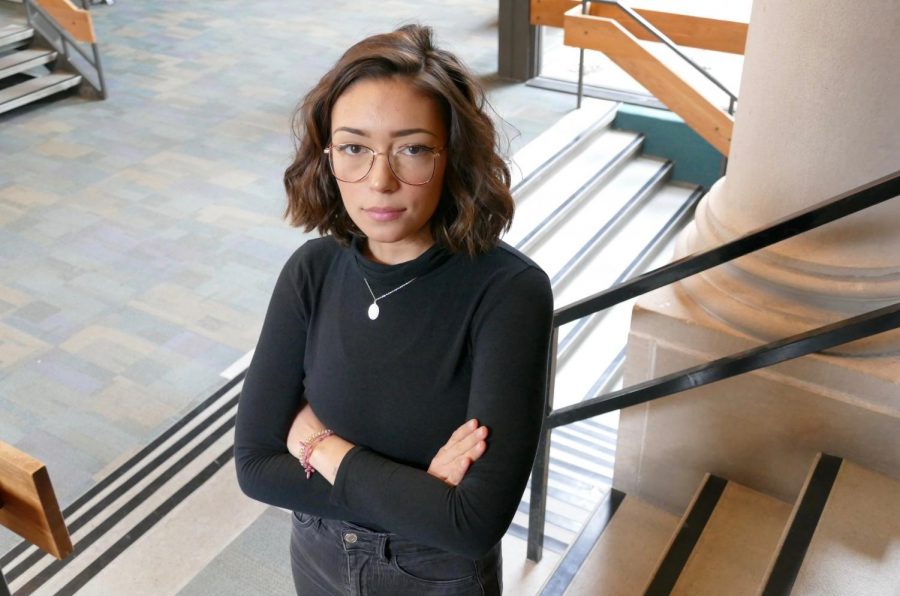Living on the edge of enrollment
Students are frustrated with financial holds impeding their academic future
November 30, 2019
Registration can be a stressful time for many Hamline students. This process is even more difficult for those who are faced with the realities of account holds, financial aid delays and other factors that prevent them from being able to register before classes fill up.
“Since I have been at Hamline…I have not had one semester where I could register on time due to financial holds,” junior Carmina Singleton said.
Singleton transferred to Hamline from St. Catherine University in 2018 and has struggled with paying her school bills ever since.
“Every semester since I started attending Hamline, I have gone to financial aid and student accounts to speak to someone about helping me out,” Singleton said. “I wish I could describe to you the coldness and emotionlessness of that space when the people who are meant to help you tell you they can’t do anything.”
The persistence of these financial holds has caused Singleton to feel both stressed and uncertain about her academic future.
“It is heartbreaking and terrifying living on the edge of ‘enrolled student’ and ‘can I afford to go back next semester?’” Singleton said. “The shame I feel because of the financial hold on my account is because of the social stigmas against them. I feel singled-out and alienated.”
This anxiety and uncertainty is a consistent aspect in the stories of other students in similar predicaments.
“I am unable to enjoy college in the way I wish I could because of how much stress account holds and the little aid in payment plans have on me,” sophomore Elizabeth Schiele said. “There was a lot of pressure put on me as a student, having to worry if I could even continue going to college or if I would be delayed in graduating when I had hoped to.”
Schiele expressed frustration with how the university has responded to her pleas for help.
“They did not try to work with us as well as I feel they could have, they gave generic answers and ultimately just wanted to be paid somehow,” Schiele said.
Lynette Wahl, Senior Director of Financial Aid and Enrollment at Hamline, gave specific details on how the university and the office of financial aid try to help students who are struggling financially.
“Our office is here to help and would like students and families with struggles with their financial aid and/or paying the Hamline bill to come to visit with us to see if there are opportunities available,” Wahl said in an email interview. “We have also attempted to reach students via phone and voicemail, to help them figure out what is missing to complete their financial aid offers or loan applications.”
Wahl also added that a large number of current account holds are due to a past due balance, rather than delayed financial aid offers. Many of these holds are caused when students haven’t yet gotten the loans they need or a simple lack of documentation such as immunization records.
First-year Gabriel Findley was unable to register on time for the spring because of a missing MMR shot. It is a shot that Hamline’s Counseling and Health Services does not provide and Findley has had trouble finding a way to pay for it.
“I feel that if a student has most of their shots they shouldn’t be on hold,” Findley said. “This has been so frustrating and affecting my mental health so bad.” Findley also expressed the thought that the university should take more steps to help students who are unable to register.
“The clinic should give out all the shots that are needed because it’s really hard to find a place that does shots without a main doctor or clinic.,” Findley said.
According to Wahl, the university has put together a Student Success Committee which works to help students who are unable to pay their bills find solutions to allow them to continue their education.
First-year Erin Brabec expressed vexation for how their financial holds sidetracked their academic plans at Hamline and forced them into classes they did not need.
“This is going to impact me the most on the Hamline Plan,” Brabec said. “Most of the letter classes I want to take are filled and I don’t want to take a class I will dislike.”
Professor Mike Reynolds, a faculty member who has been involved with this issue, sympathized with students affected by financial holds.
“They get stuck with a bill that is hard to resolve, and they end up not just with a problem for registering, but a deeper challenge of whether they can find a path to keep going at Hamline,” Reynolds said. “These situations are the hardest — I’m not much help, despite my experience, and our resources in Financial Aid/Student Accounts are also stuck.”
Reynolds also emphasized that many students with holds are able to resolve their problems if they are addressed early on.
“I’d say that many of my students who had holds in September were able by the time registration happened to get a plan figured out,” Reynolds said. “I do know that in many cases, we can and do try to mitigate that stress by being good communicators… the extra stress is lousy, but there were solutions.”
However, Reynolds believes there is still work to do to help students stuck with financial holds.
“It isn’t just a matter of helping individuals figure out how to address a bill that aid and loans can’t cover, but a deeper question about how we define and communicate about the costs of attending,” Reynolds said. “We should think about other models of financial aid that do a better job of addressing these deeper challenges.”


